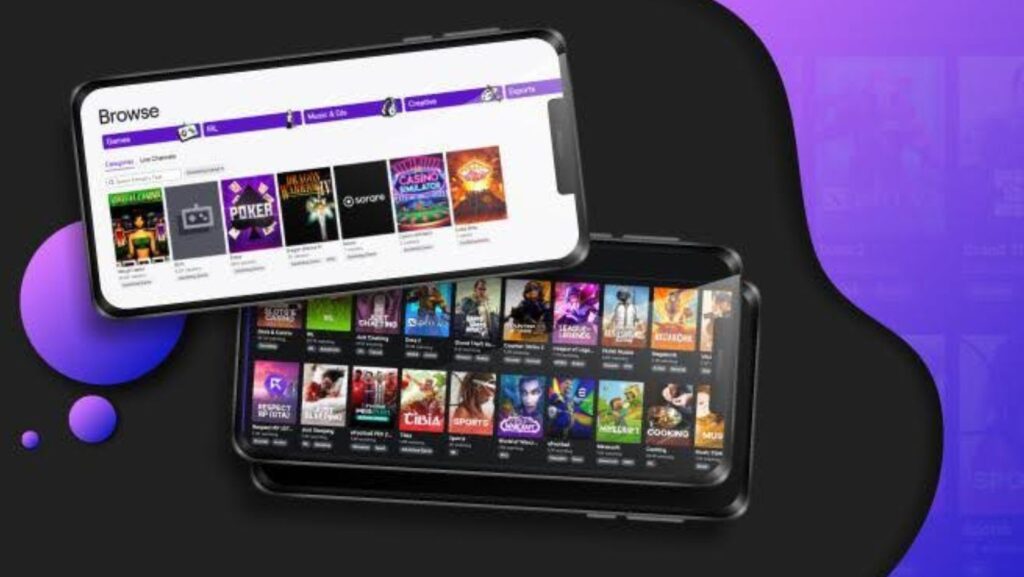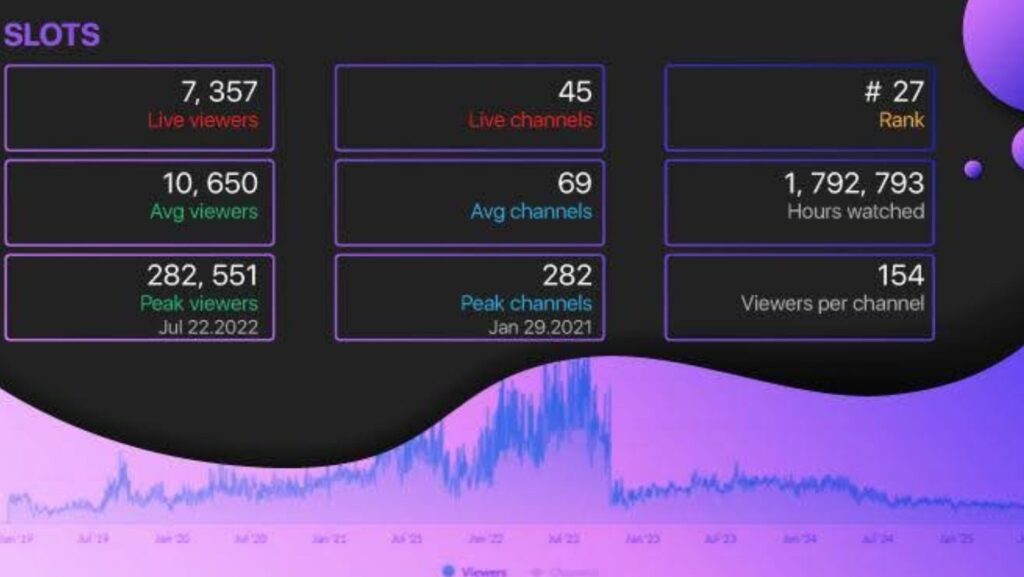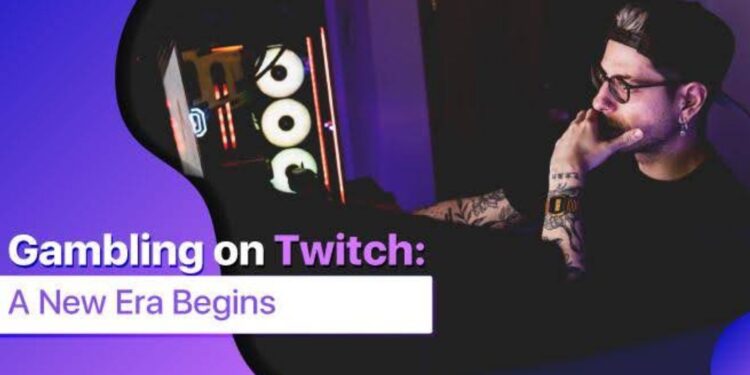For a long time, Twitch remained a platform where users could enjoy live gaming content. However, in the early 2020s, it had a dramatic transformation that brought this website to new heights. Between 2020 and 2020, gambling on Twitch had become a huge phenomenon that pumped up the popularity of many creators. Names like Tranwreckstv, xQc, Adin Ross, and Roshtein developed massive media presence around high-stakes casino content.
By mid-2022, the “Slots” category consistently ranked among the top thirty on Twitch, often surpassing mainstream gaming. With over 282,000 concurrent viewers, the category claimed a record, showcasing how wagering becomes more and more available entertainment for the broader audience. But such a phenomenon raised ethical questions, especially given the fact that many gambling Twitch streams worked with offshore casinos with close to no regulations.
In October 2022, the backlash Twitch faced pressured them into announcing stream regulations and banning users who promoted unlicensed sites. This way, casinos like Stake, Rollbit, Duelbits, and Roobet became black-listed on the platform, and all the creators who played them live received a ban. However, due to the ambiguity of the policy, smaller platforms such as Spinmama may still be acceptable. The company’s goal was to curb unregulated Twitch betting promotion and reduce exposure of vulnerable users to high-risk gambling behavior.
What Twitch Actually Banned
The new policy, detailed on Twitch’s Safety Center, prohibited “streaming of slots, roulette, or dice games from websites that are not licensed either in the United States or in other jurisdictions that provide sufficient consumer protection.” This statement intentionally left room for interpretation. Twitch never defined what “sufficient” meant, leaving both creators and viewers in legal ambiguity.
In August 2023, Twitch expanded the enforcement list to include several additional offshore operators. The update also banned links, referral codes, or promotional integrations to unlicensed gambling Twitch platforms, as confirmed by Mishcon de Reya’s legal analysis of the revised policy.
However, not all gambling on Twitch content was outlawed. Twitch made it clear that the following categories remain acceptable under its terms:
- Poker and similar skill-based games;
- Sports betting when conducted through properly licensed operators;
- Social and free-to-play casinos, where no real money is exchanged;
- Fantasy sports and esports betting within regulated frameworks.
As PlayToday’s review of Twitch gambling content noted, the biggest challenge lies in enforcement. Many streams still showcase casino-style gameplay disguised as entertainment, creating a regulatory gray area that remains unresolved.
How Streamers Made Money
Before the crackdown, gambling on Twitch was one of its most profitable niches. Streamers earned vast sums through sponsorships and referral deals with online casino.

As Dexerto and Bloomberg reported, Adin Ross had earned up to $900,000 per week from his Stake.com partnership. Tranwreckstv, on the other hand, admitted that his gambling Twitch contracts brought him more than $360 million during his years of streaming on the platform.
These staggering sums underscored the financial ecosystem that had grown around gambling on Twitch, one that incentivized high-risk behavior both for creators and audiences.
Immediate Reaction from the Industry: Migration of Creators and New Platforms
After Twitch’s prohibition, the platform’s gambling Twitch community splintered. Many of its biggest stars migrated to new streaming platforms that allowed unrestricted casino promotion.
The Rise of Kick
Among them, Kick became the most prominent refuge for gambling on Twitch streamers. Kick gambling is backed by the same group behind Stake.com, the crypto-casino that had been central to Twitch’s controversy. The site’s perks were:
- A groundbreaking 95/5 revenue split;
- Streamers retained 95% of their earnings – compared to gambling twitch streamers standard 50/50.
Major figures including xQc, Adin Ross, and Roshtein, signed exclusive contracts with Kick. Reports from SBC Americas indicate that xQc’s deal was worth up to $100 million, one of the largest in stake streaming history.
Impact on Twitch
Gambling Twitch category suffered a steep decline. By looking at the data, it becomes apparent that the “Slots” category lost 80% of the viewership, averaging 10,000 viewers a day, instead of 60,000, as it was in 2022.
Kick, on the other hand, had built a following on gambling on Twitch-style content and reached the mark of more than 100 million views in the very first year. It is also tied to the fact that large names like xQc and Trainwreckstv brought their audience with them. However, Twitch had a massive boost for traditional categories, such as Just Chatting, IRL, and Valorant, remaining the main choice for gaming content and eSports streams.
What Is Happening Now with Gambling on Twitch?
Three years after the ban, gambling on Twitch has stabilized but remains a fraction of its former self. According to TwitchTracker’s current statistics, the “Slots” category now averages 10,650 viewers, with 1.79 million hours watched monthly – a massive drop from its pandemic-era peak.
Despite this decline, gambling Twitch content hasn’t disappeared. Instead, it has shifted to regulated or “gray-area” operators and parallel platforms like Kick and Rumble.
Regulatory Oversight and Mental Health Concerns
The long-term effects of exposure to gambling on Twitch are increasingly studied. A 2024 paper in the Journal of Behavioral Addictions found that repeated exposure to casino gambling streams can normalize betting among adolescents and increase the likelihood of compulsive behavior.
In response, Twitch has partnered with psychology associations and digital safety organizations to improve its moderation tools and identify “high-risk” streaming behavior.
Twitch CEO Dan Clancy, in an interview with SBC Americas, explained the rationale behind the ban:

“The thing that was growing was these unregulated offshore gambling sites. For people that don’t understand, these are sites that nobody oversees to ensure fair odds or payout integrity. They operate outside regulation, and that’s a serious risk for consumers.”
An Ongoing Gray Zone
Although real-money slots and dice games are banned, gambling Twitch audiences still find alternatives through social casino Twitch versions, such as Stake.us or sweepstake-based sites, which are allowed under Twitch’s terms as long as they do not enable direct monetary betting. This has led to a thin line between legitimate entertainment and disguised gambling on Twitch promotions.
Analysts agree that twitch gambling policy remains intentionally flexible. The company aims to preserve creative freedom while preventing exposure to unsafe gambling in Twitch operations.














